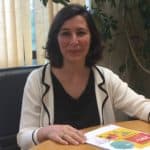The Spanish Health Promotion and Prevention Strategy (HPPS) [1], launched in 2013, combines health promotion, ‘positive parenting’, and life-course approaches. Using elements from health, social, and education services, the strategy addresses both physical health – tackling for example the factors contributing to chronic diseases – as well as emotional health and wellbeing. Resources have been developed for citizens, health professionals, and local authorities.
By Pilar Campos Esteban and Alberto Martín- Pérez Rodriguez
‘Positive parenting’ describes parental behaviour that respects the best interests of the child and their rights. Positive parents nurture, empower, guide, and recognise children as individuals in their own right. This involves setting boundaries to enable the full development of the child.[2]
States can support positive parenting through, amongst other things, educational programs for parents and guardians during pregnancy and other stages of the child’s development. Educational positive parenting programs have typically been promoted by social services and education departments. Although a number of health programs such as childbirth preparation programs or the child health control programs have also tackled positive parenting, a health promotion focus is usually missing.
The Spanish Health Promotion and Prevention Strategy (HPPS) provided the opportunity to introduce this missing perspective. The Strategy acknowledges that a healthy start in life is a paramount priority for all children. The HPPS was developed with a life-course approach; it includes parental programs that encourage a healthy start in life, whilst also promoting active and healthy ageing.
In line with the main international recommendations and strategies for reducing the prevalence of chronic diseases, the strategy addresses the core factors related to non-communicable diseases: healthy eating, physical activity, tobacco consumption and hazardous drinking, emotional wellbeing, and safe environments for the prevention of accidents. Health, educational, and local settings have been identified as key areas for intervention.
Positive parenting is the chosen approach to meet the goal of promoting children’s emotional wellbeing. The goal is to provide parents and other caregivers with personal, emotional and educational abilities to efficiently engage in positive family dynamics and the development of adequate parental models for children.
Specifically, the intervention aims to promote:
- Safe, non-violent upbringing for children and conflict-free environments.
- Children’s social, emotional, language, intellectual and behavioural abilities
- Healthy lifestyles among children
To develop the intervention, the Ministry of Health, Consumer Affairs and Social Welfare has produced different resources for citizens:
‘Positive parenting: improving health and wellbeing from children aged 0 – 3 years old’ is an 8-hour online training course including interactive activities for families and caregivers. By November 2018, 6,200 participants had taken part[3] ). The course is structured in four training modules: emotional attachment; nutrition; physical activity and play; rest and sleep. It has been available online, free of charge, since January 2017.
National recommendations for promoting physical activity and preventing sedentary behaviours have also been developed in collaboration with the Ministry of Education and Professional Training and are available online. They were adapted from WHO guidance adding specific recommendations for children aged 0-5 years old.

Training of health professionals, mainly within primary health care, is considered an essential element of the HPPS. More than 33,000 professionals have been already trained in different online courses (counselling on healthy lifestyles, individual and group health education, physical activity prescription, frailty detection and prevention, etc).
One of the courses is ‘Positive parenting: improving health and wellbeing amongst children aged 0 – 3 years old. Online training for organising group on-site activities for health professionals’. It includes tools for professionals to adapt the online training offered to citizens into a program of workshops targeted to more vulnerable populations, aiming to reduce health inequalities. Four editions have already been conducted with 3341 participants and an overall evaluation of 8.6/10[4]. An extra edition for 47 participants targeted health and social professionals working with Roma parents.
Schools are a key setting in the HPPS and many materials have been produced in collaboration with the Ministry of Education and Professional Training to promote physical activity.
One of them is the Health and Physical Activity Guide for children aged 3-6 years. Targeted to parents and caregivers, it offers different exercises, games, and tips to increase children’s physical activity. The guide complements a similar one addressed to Pre-School teachers.
The municipal setting is also a fundamental pillar for the HPPS, with a vastly developed implementation plan[5]. By November 2018, 278 municipalities had adhered to the SHPP, representing 19.3 million of inhabitants – (41.5% of the Spanish population).
A yearly agreement with the Spanish Federation of Municipalities and Provinces provides funds to both municipalities adhered to the HPPS and members of the Spanish Network of Healthy Cities to implement health promotion interventions. The 2018 call for funds introduced a set of prioritized proposed interventions including positive parenting that promotes healthy lifestyles for both general and Roma population. Adhered municipalities have identified and uploaded 2,695 local resources for positive parenting to the application LOCALIZA salud.
Positive parenting is a well-developed intervention in the HPPS. Consolidating its achievements is of paramount importance. However, the development of other key comprehensive interventions such as lifestyle counselling in Primary Health Care for children and for women during pregnancy and breast-feeding are needed to boost their synergies and enhance equity and a healthy start in life. To achieve this, the inclusion and linkage to positive parenting resources in electronic health records in primary healthcare would also be needed.
References
[1] Ministry of Health, Consumer Affairs and Social Welfare. The Prevention and Health Promotion Strategy of the Spanish NHS, within the framework of chronicity addressing in the NHS. Executive Summary https://www.mscbs.gob.es/profesionales/saludPublica/prevPromocion/Estrategia/docs/ExecutiveSummary.pdf
[2] Council of Europe. Policy to support Positive Parenting. https://rm.coe.int/168046d340
[3] Ministerio de Sanidad, Consumo y Bienestar Social. Estrategia de Promoción de la Salud y Prevención en el Sistema Nacional de Salud. Memoria de Implementación 2014-2018. https://www.mscbs.gob.es/profesionales/saludPublica/prevPromocion/Estrategia/docs/Memoria_Implementacion_2014_2018.pdf
[4] Ministerio de Sanidad, Consumo y Bienestar Social. Estrategia de Promoción de la Salud y Prevención en el Sistema Nacional de Salud. Memoria de Implementación 2014-2018. https://www.mscbs.gob.es/profesionales/saludPublica/prevPromocion/Estrategia/docs/Memoria_Implementacion_2014_2018.pdf
[5] Eurohealthnet magazine 11 Issue https://eurohealthnet-magazine.eu/spanish-strategy-on-health-promotion-and-prevention-and-its-local-implementation/


